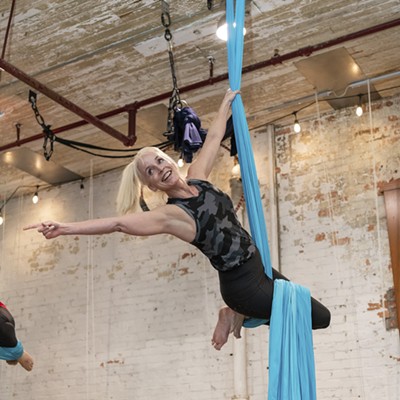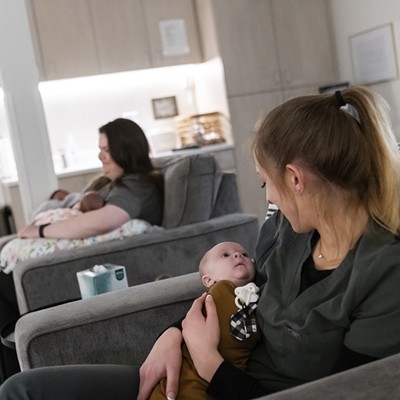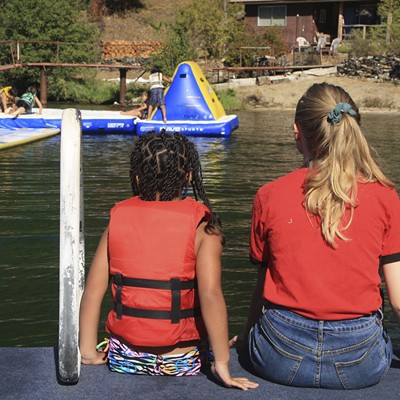
I had to rummage through piles of books stacked in front of my bookshelves to locate my books about organizing and clearing clutter. (Writers love irony.)
According to Clutterers Anonymous (yes, such a group really exists), clutter is defined as “anything we don’t need, want or use that takes our time, energy or space, and destroys our serenity.” And clutter can be a real, physical health hazard: Piles of stuff make a space difficult to clean, potentially leading to infestation by insects, rodents or mold, and creating a fire risk.
Of course physical clutter — rarely worn clothes, old magazines, piles of junk mail, broken appliances — is only part of the story. Our emotional and spiritual lives can be as cluttered as our physical environment.
“Physical and mental clutter are closely related,” says Janetta McCoy, associate professor of interior design at WSU Spokane. In fact, chronic disorganization can be a symptom of attention deficit disorder, obsessive-compulsive disorder, depression and other mental health conditions.
But not everyone who chooses piles over files — ahem — is suffering from a mental illness. Thanks to our Puritan roots, our culture believes that neatness is next to godliness — or, at the very least, is a sign of strong mental health. And yet many people — right-brained creative types — chafe at the clean-desk mentality of most organizational advisors. They like to be able to see visual cues and reminders of projects in process. Sometimes those piles really are highly organized, even if they don’t look it.
About a year and a half ago, McCoy did a study on stress and office environments. She went all over the Spokane area taking photographs of offices. “Some were highly cluttered, some were very neat,” she says. “Some had views outside, some did not, but all were offices for only one person.” Next, she sorted the photos and created an online survey where she asked participants to rate how stressed they would feel in each of the offices pictured. Often, a participant would rank his or her own office as not stressful even if it were messy, while classifying other cluttered offices as stress-inducing.
“The thing about clutter is, if it’s your clutter it’s OK, but if it’s somebody else’s clutter, that’s another story,” she says.
Turns out the issue is less about clutter and more about how you feel about the clutter, she says.
“If you feel like you’re not making a good impression [because of your clutter], think about how that affects what you say, how you present yourself, how you feel about yourself,” McCoy points out. “Clutter can add to your overall stress level, and stress can cause all kinds of problems that can become physical — heart problems, high blood pressure, and so on.”
A good rule of thumb, then, is that clutter is a problem when it impacts your daily activities and relationships. If clutter adds to your stress level, then it’s time to clear a few things out.
Organizing experts suggest that you start small: Pick one small space and begin to chip away at what’s there. Decluttering your entire home or workplace may feel overwhelming, but every little bit helps. Sometimes tidying just a small corner can reduce stress. The bottom line is to find an organizing method that’s effective for you and ignore those chirping voices who insist there’s only one right way to be organized.















